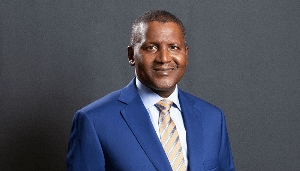Faith-based public policy research and advocacy group, Advocates for Christ Ghana (A4CG) has hailed the ongoing efforts to expedite processes on the development of Ghana’s Broadcasting Bill and to get it tabled before Parliament when it resumes sitting next month.
In a statement, the group commended, in particular, the leadership of the Ministries of Information and Communication in swiftly rallying stakeholders together to dialogue, build consensus and find a balance between the constitutional rights that guarantee media independence on one hand and on the other hand, the public order, as well as national and cultural cohesion promotion demands, that are also protected by law.
“Indeed, the unfortunate Kasoa ritual killing of the young boy, which was allegedly inspired by broadcast media content, has weighed heavily on the conscience of our nation, and this has been a sad wake-up call, to have a national conversation around the sticky issues of regulating Ghana’s vibrant fourth estate and to protect its citizens from the growing unchecked excesses of digital progress.
“We are happy to see the cooperation between the key regulatory bodies – the National Communications Authority (NCA) and the National Media Commission (NMC) and their firm intervention in sanctioning some of the infractions in the sector to restore public confidence,” the statement read.
On his part, Chairperson for A4CG, Edem Senanu noted that the Broadcasting Bill has seen a number of bi-partisan drafting inputs from different political administrations, as such, passage of the law is long overdue.
“Clearly a Broadcasting Act is urgently needed to take into account the technological changes and challenges occurring by day and the attendant opportunities and threats, imposed on our intellectual, cultural and moral fabric as a nation.
Media ought to be safe for all and it takes a legal framework to make that happen – #Make Ghana’s Media Safe 4 all!”
The Group further hoped that the consultative process will deliver a robust legal framework and provide a broadcasting regime that promotes an adequate balance between access, transparency, accountability, credibility, fair competition and consumer protection.
The Group’s Media & Communications Lead, E. Bashan, has indicated that: ‘The broadcasting bill should prioritize the following critical issues – (i) address and clarify the overlapping remit and independence of the regulators, (ii) tackle mandatory local content broadcasting quotas, (iii) promote accountable, transparent and inclusive ownership requirements, (iv) facilitate content classifications and (v) outline broadcasting and consumer protection rules, especially in relation to vulnerable populations, amongst others.
General News of Friday, 23 April 2021
Source: www.dailymailgh.com

















